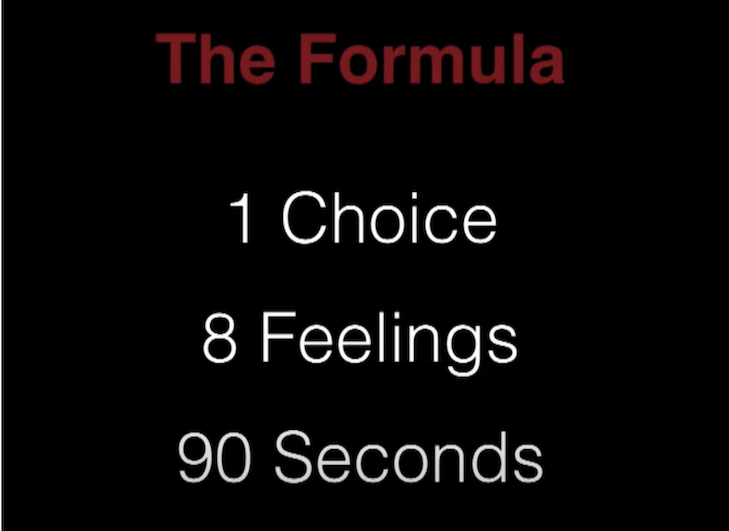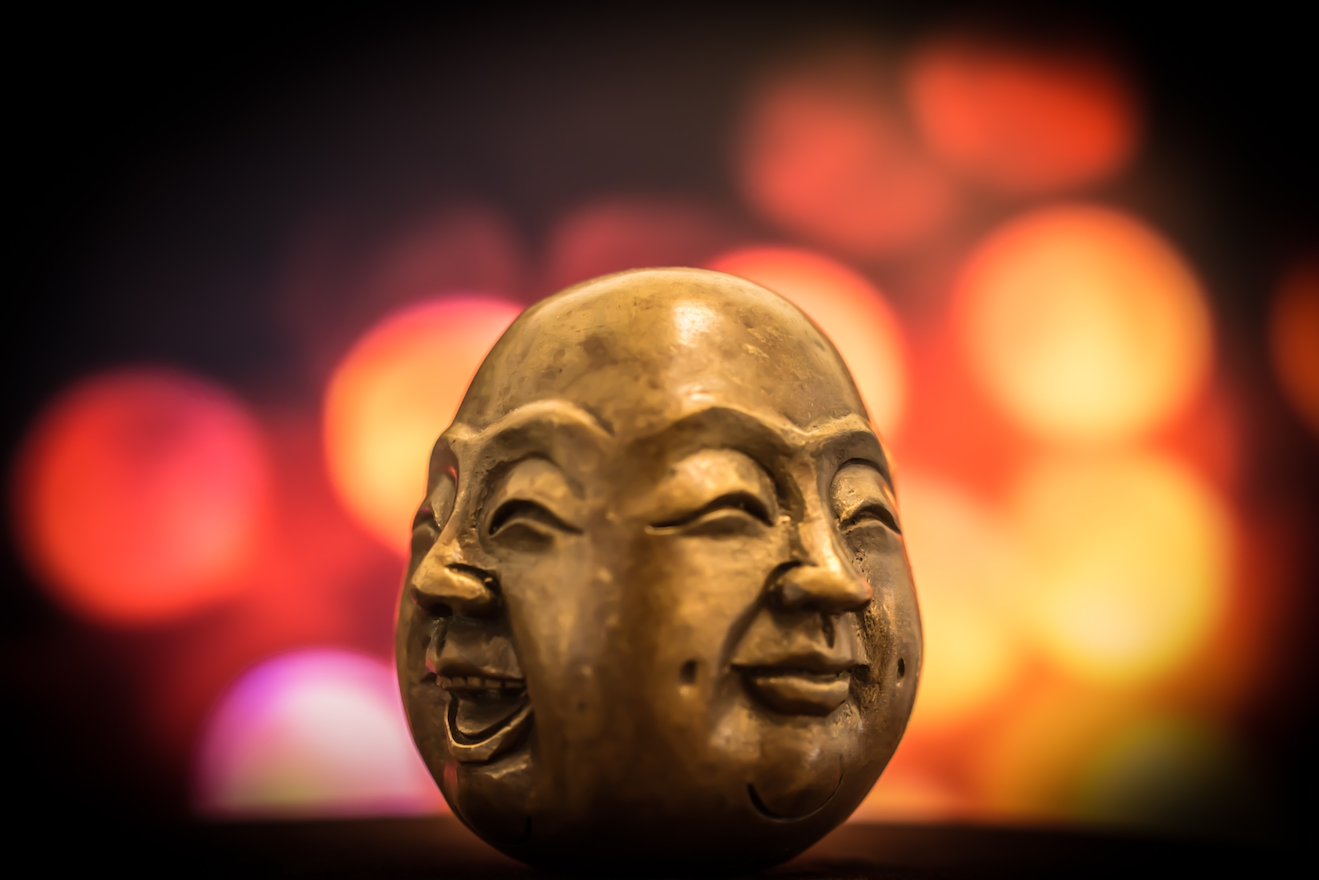March 29, 2023 by Yoshi Ramanujam
How to Feel Your Emotions
 . . . . . . .
. . . . . . .

“The Adult Chair” podcast with Michelle Challfant
Why and How to Feel Your Emotions with Dr. Joan Rosenberg
When unpleasant emotions arise, we’re socialized to distract ourselves with food, shopping, drinking, etc.
How can we stay with our emotions?

1 choice:
Choose to stay with the feeling in the moment, (and not allow for distractions, such as food, shopping, anxiety, having feelings about feelings, self-hatred, etc.)
8 feelings: (most common spontaneous everyday feelings)
- Sadness
- Shame
- Helplessness
- Anger
- Vulnerability
- Embarrassment
- Disappointment
- Frustration
90 seconds:
Lean into the emotions for 90 seconds - not because you have to “sit” in the emotion, but to be able to move through the emotion. Most emotions last less than 90 seconds.
The body’s response to emotions:
“When a feeling gets triggered, there is a rush of biochemicals into the bloodstream that activates those bodily sensations. And they flush out of the bloodstream in the upper limit of roughly 90 seconds… [most feelings last shorter than 90 seconds]… You want to be able to see yourself as being able to ride one or more short lived bodily sensation waves. If you can ride these short lived bodily sensation waves, then you can lean into unpleasant feelings.”
"
"The real twist is that the reason you can’t stand feeling something, especially unpleasant feelings, is because you don’t like the bodily sensation associated with that feeling."
"
We metabolize feelings by feeling it and by expressing it. It morphs once you experience it, and it morphs when you express it.

“I feel like once I start crying, I won’t be able to stop. What do I do?
Feelings are transient by nature - therefore, you will not be sad forever. However, there are 3 big contributors to lingering feelings:
1. Thought suppression:
Specifically avoiding a thought doesn’t work. You have to think about the thing in order to avoid it - for ex: Tell yourself not to think about a zebra with pink and green stripes2. Repetition of thought, memory, or experience.
When you recall an experience, thought, or memory, you pull up everything that is associated with that memory (including feelings). Ex: breakups - you constantly think about them and loop your feelings about the breakup seemingly forever.The reason an emotion sticks around is because we built a story around it. Drop the story, fall into the emotion, and move on. If you keep telling yourself the same story, the same emotions are going to linger around you.
3. Harsh self-criticism.
When people engage constantly in self-criticism or negative self-talk, it constantly activates the unpleasant feelings that are underneath the thoughts. It can also be used as a distraction from unpleasant feelings.What to do: You want to be able to understand the impact and meaning that life experiences had on you across time. When they happened, as you aged, and now. This will help you move through your grief.
More info here:
- 90 seconds to a Life You Love (Book, ch.8)
- Grief- the pathway to forgiveness - TedTalk about disguised grief.

-T.K. Coleman
personal anecdote: feeling emotions
I noticed a missed call from my children’s school saying that they were waiting for me to pick them up. *embarrassment and mild panic* Oops - they didn’t have their usual after-school activity this week (I should have known, it was in my calendar). I tried to call the school back as I was walking over to the school. Line busy.
I arrive and my kids are sitting in the office. The school staff is gracious about my tardiness. *relief* Kids are understanding towards my tardiness. *more relief* I walk home with the kids.
The weather has other plans. We get caught in a rare intense hailstorm. My youngest is frightened by the sound of thunder and low visibility as the hail pounds against his umbrella; he starts panicking. *cue soothing tones* We make it home in one piece.
My next surprise: I see a missed call and a text from my husband “catching an Uber from work to pick up the kids.” *oh dear, I thought I had the situation under control* I let him know I’ve picked them up but he’s already on his way. 5 minutes later the front door opens with a bang, my husband’s mood matching the intense hailing outside. He makes some tea and settles down a bit, but says “you should have let me know that you were picking up the kids.” I nonchalantly responded with “I’m sorry, I didn’t know the school called you too” innocently proclaiming my ignorance. *no empathy, playing defense*
A minute later I find myself looking for an escape. I should watch a tv show. What should I watch? Is it acceptable to have a midday drink? Do we have any good snacks in the cupboard? My thoughts circle around, trying to land on something that will make me feel better.
Ahhh……….. I see what I’m doing. I’m trying to distract myself from my feelings. So. Deep breath.
Choose to feel.
What am I feeling? I look at the list of 8 feelings. I find within me, various levels of various emotions:
- shame (I should pick up my kids on time),
- anger (why didn’t I pick up my kids on time?),
- vulnerability (now everyone thinks I'm a bad parent),
- embarrassment (I can’t even keep track of when my kids need to be picked up),
- disappointment (in myself),
- frustration (at husband, for needlessly leaving work to pick up the kids and him being angry with me),
- Sadness (why didn’t my mom friends remind me that the after-school class was canceled today? Do they not like me anymore? Did I do something wrong to offend them? I know this is irrational, but the mind likes to make up stories).
I don’t linger cognitively on the individual emotions, but instead turn inward and allow the corresponding body sensations to arise and process these emotions.
I don’t lean into anything or dig anything up, I just allow any sensations to come up and let them be. I’m surprised that most sensations are fairly mild and don’t last very long. However, once I thought I was “in the clear” I’d loop a thought about the situation which would bring up an emotional response, so then I’d “sit and process” any bodily emotions again.A couple minutes later, I realized that my husband would probably like to have his feelings on the situation acknowledged. It is true that I didn’t know the school called him, but it’s also true that he left his work right away to pick up the kids. So I went over to him and mentioned that it was probably scary to get a call from the school about no one picking up the kids (to which he said yes, he was feeling panicked about it), and if it were to happen again, I’ll know to call him right away and let him know that I can (or cannot) pick up the kids. Furthermore, that I appreciated that he left his work right away when he thought that the kids had no one to pick them up. I found tears of gratitude spring to my eyes when I thanked him. I’m not crying, you’re crying.
Now, there is a lightness inside of me that hasn’t been there before. An absence of holding in body sensations of emotions.
This is a start.

“Until you make the unconscious conscious, it will direct your life and you will call it fate."
- C.G. Jung
*Reiki practitioners are not therapists. Reiki sessions compliment therapy very well. However, please find a therapist if you are seeking a therapy session. Many blessings.
Read more: Yoshi's Reiki Blogs